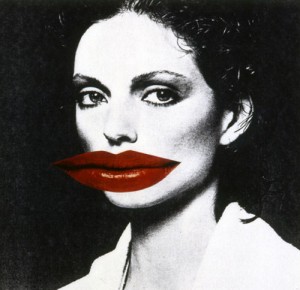 Commonly held ideas about the Eighties picture a decade of unrepentant art boom, ideological disengagement, and postmodern drift toward an alleged « end of history. » A closer look at Europe, however, suggests otherwise. The fall of the dictatorships in Southern Europe, the ending of the cold war and subsequent changes in Central and Eastern Europe dramatically reconfigured the geography of the continent. New relationships with former colonies and the rise of neo-liberalism enduringly changed its political climate, while intensified migrations complicated the perception of national identities and cultures. Europe therefore became a space of encounters with challenged borders, sharing the hopes of reunification and freedom, and the evils of neo-fascist activism or AIDS epidemic. The arts were by no mean absent from these disruptions. Art scenes which had been long constrained and largely withheld from view from the West evolved from clandestinity to openness, and new networks were built or re-activated. Circulations to or within the continent also fostered new exchanges, and allowed for fruitful and sometimes conflictual collisions between artistic traditions, trainings and canons. With the historical distance, increasingly accessible archives and artworks, as well as a wider range of art historical methods, it is now possible to address this period in new critical terms. It is the contention of this session that recovering the historical depth of the European Eighties is a necessary step to a better understanding of the globalization that shapes today’s art world as well as the challenges that western democracies are currently facing, esp. extreme far-right identity politics, migrant crisis, and doubts on the future of the UE.
Commonly held ideas about the Eighties picture a decade of unrepentant art boom, ideological disengagement, and postmodern drift toward an alleged « end of history. » A closer look at Europe, however, suggests otherwise. The fall of the dictatorships in Southern Europe, the ending of the cold war and subsequent changes in Central and Eastern Europe dramatically reconfigured the geography of the continent. New relationships with former colonies and the rise of neo-liberalism enduringly changed its political climate, while intensified migrations complicated the perception of national identities and cultures. Europe therefore became a space of encounters with challenged borders, sharing the hopes of reunification and freedom, and the evils of neo-fascist activism or AIDS epidemic. The arts were by no mean absent from these disruptions. Art scenes which had been long constrained and largely withheld from view from the West evolved from clandestinity to openness, and new networks were built or re-activated. Circulations to or within the continent also fostered new exchanges, and allowed for fruitful and sometimes conflictual collisions between artistic traditions, trainings and canons. With the historical distance, increasingly accessible archives and artworks, as well as a wider range of art historical methods, it is now possible to address this period in new critical terms. It is the contention of this session that recovering the historical depth of the European Eighties is a necessary step to a better understanding of the globalization that shapes today’s art world as well as the challenges that western democracies are currently facing, esp. extreme far-right identity politics, migrant crisis, and doubts on the future of the UE.
We therefore seek papers on any aspects of art and culture of 1980s Europe, either considering general trends and artistic phenomena or focusing on specific artists and artworks. In order to foster a contextualized view of the period, we welcome contributions that analyze the decade in light of newly available archives, collections or documentation and/or that anchor the Eighties to earlier historical periods and that connect Europe to other continents. Of particular interest to the selection committee will also be papers focusing on the exploration of permeable frontiers, both of identities (national, racial, ethnic, religious, sexual, political and intimate, public and private) and of mediums and categories (art/design; art/technology; art/image). Preference will be given to research self-consciously addressing the historical, ideological and geographical embeddedness of their objects, and replacing the European Eighties in a global perspective.
Please send an abstract (400 words), along with your CV to Sophie Cras (sophie.cras@univ-paris1.fr) and Emmanuel Guy (guye@newschool.edu) by April 4th.
European Eighties
EPCAF Sponsored Session
College Art Association (CAA)
Panel Co-Chairs: Sophie Cras (Université Paris 1 Panthéon-Sorbonne) and Emmanuel Guy (Parsons Paris, The New School)
More at www.epcaf.org

Leave a Reply
You must be logged in to post a comment.